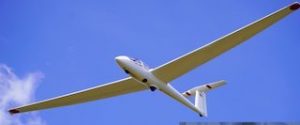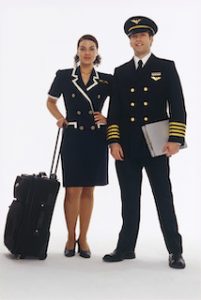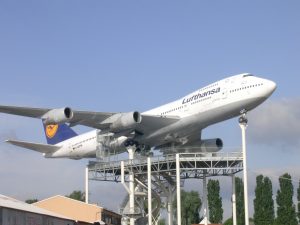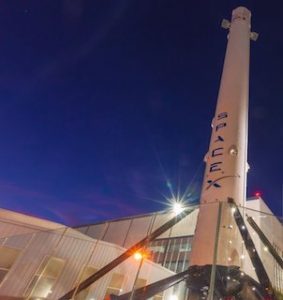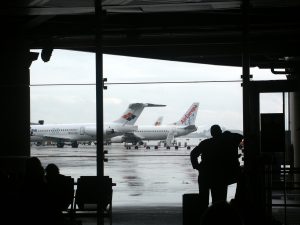Multi-Crew Cooperation Course

A Multi-Crew Cooperation (MCC) course is a training program designed to enhance the skills of pilots in working effectively as part of a flight crew. This course is crucial for those aiming to operate in multi-pilot environments, such as commercial airliners. The MCC course focuses on improving communication, decision-making, situational awareness, teamwork, and the management of workload within a multi-crew cockpit.
Practical application
The MCC course is an integral part of pilot training, ensuring that pilots are well-prepared to handle the complexities of modern aviation in a multi-crew setting. In today’s aviation industry, the majority of commercial aircraft operate with a two-pilot system, necessitating seamless coordination and cooperation between the Captain and First Officer. The course addresses the intricate dynamics of cockpit teamwork, emphasizing the importance of clear communication, effective decision-making, and efficient workload management. By engaging in realistic flight simulator sessions, pilots experience firsthand the challenges and demands of multi-crew operations. These practical exercises, coupled with theoretical ground school lessons, equip pilots with the necessary skills to manage routine flights and respond adeptly to emergency situations. The MCC course thus bridges the gap between solo pilot operations and the collaborative environment of commercial aviation, fostering a deep understanding of the interplay between technical flying skills and human factors.
Key components of an MCC Course
1) Communication skills:
- Emphasis on clear and concise communication between pilots
- Use of standard operating procedures (SOPs) and standard phraseology
2) Leadership and followership:
- Understanding the roles and responsibilities of the Pilot in Command (PIC) and the co-pilot (First Officer)
- Developing leadership skills for the Captain and effective followership for the First Officer.
3) Decision-making:
- Strategies for making collective decisions
- Use of tools like the Decision Making Model (DMM) and Threat and Error Management (TEM)
4) Situational awareness:
- Techniques to maintain and improve situational awareness
- Recognising and mitigating potential hazards
5) Teamwork and cooperation:
- Building trust and cooperation among crew members.
- Conducting effective briefings and debriefings.
6) Workload management:
- Managing tasks efficiently to prevent overload
- Prioritising tasks and distributing workload between crew members
7) Problem-solving:
- Collaborative problem-solving techniques
- Handling abnormal and emergency situations as a team.
8) Use of Flight Simulators:
- Practical training sessions in flight simulators
- Simulated scenarios to practice and evaluate multi-crew cooperation.
Course structure
1) Ground school:
- Theoretical classes covering the principles of multi-crew operations, human factors, and CRM (Crew Resource Management)
- Discussions and case studies on real-life incidents and accidents to learn from past experiences
2) Simulator sessions:
- Practical training in a flight simulator replicating real cockpit environments
- Exercises focusing on normal and emergency procedures, teamwork, and communication
- Assessment of performance with feedback for improvement.
Certification
Upon successful completion of the MCC course, pilots receive a certificate that is often a prerequisite for employment with commercial airlines and is required for obtaining an Airline Transport Pilot License (ATPL) in many countries.
Benefits of the MCC Course:
- Enhances the safety and efficiency of flight operations
- Prepares pilots for the dynamics of working in a multi-crew environment
- Improves overall flight performance and reduces the likelihood of human errors.
Prerequisites
- Typically, pilots must hold a Commercial Pilot License (CPL) and an Instrument Rating (IR)
- Some experience in actual flight hours may be required, depending on the regulatory requirements of the aviation authority
Reduces human error
The MCC course significantly contributes to enhancing flight safety. By focusing on Crew Resource Management (CRM) principles, the course trains pilots to utilize all available resources, including fellow crew members, effectively. This collaborative approach reduces the likelihood of human errors, which are often the result of miscommunication or poor decision-making. Pilots learn to conduct thorough briefings and debriefings, ensuring that every crew member is on the same page regarding flight plans and potential contingencies. The course also instills a culture of continuous learning and self-improvement, encouraging pilots to reflect on their experiences and incorporate lessons learned into their future flights. Ultimately, the MCC course not only prepares pilots for the technical demands of multi-crew operations but also instills a professional ethos centered on teamwork, vigilance, and proactive problem-solving, which are crucial for maintaining the highest standards of aviation safety


